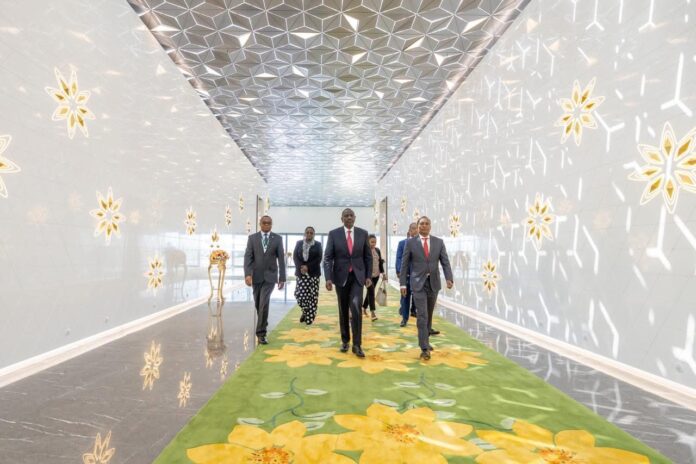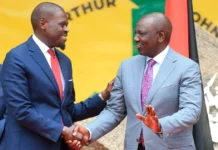President William Samoei Ruto has arrived in Addis Ababa, Ethiopia, for the second Africa Climate Summit (ACS), nearly a year after Kenya hosted the inaugural meeting in Nairobi.
The summit aims to place Africa at the forefront of global climate action by advancing African-led adaptation, mitigation and green growth while pushing for reforms in climate finance. It will be followed by the Africa-CARICOM Summit later today, which seeks to deepen political, economic, cultural and diplomatic ties between Africa and the Caribbean.
Ruto’s attendance underscores his growing role as a continental and global voice on climate issues. As chair of the Committee of African Heads of State and Government on Climate Change, he has argued that Africa must be compensated for bearing the brunt of climate change despite its small carbon footprint. In recent months he has travelled widely, including to Japan in February where he secured investment commitments in technology and infrastructure. He has also represented Africa at G7 and G20 forums, calling for reforms to international financial institutions.
But at home, Ruto’s constant globetrotting has drawn sharp criticism. Kenyans have questioned the value of his frequent and costly foreign visits at a time when many are struggling with high living costs and rising taxes. The Controller of Budget, Margaret Nyakang’o, recently raised the alarm over what she termed “excessive executive travel”.
According to her report, the national government spent Ksh.25.46 billion on local and foreign travel between July 2024 and June 2025. The figure represents only a marginal reduction of Ksh.1.7 billion, far short of the Ksh.11 billion cut Ruto pledged two years ago when he promised to slash government travel spending by half to free funds for development.
State House alone made an additional requisition of Ksh.5 billion under Article 223, which allows for emergency funding, channeling much of it into domestic travel, hospitality, fuel and vehicle maintenance. Critics argue that such spending undermines the president’s repeated calls for austerity and fiscal discipline.
The expenses come against the backdrop of Ruto’s efforts to cast himself as a global statesman. Supporters say his visibility on the world stage helps attract investment and elevates Kenya’s standing, while opponents insist the benefits are outweighed by the mounting travel bill.



















